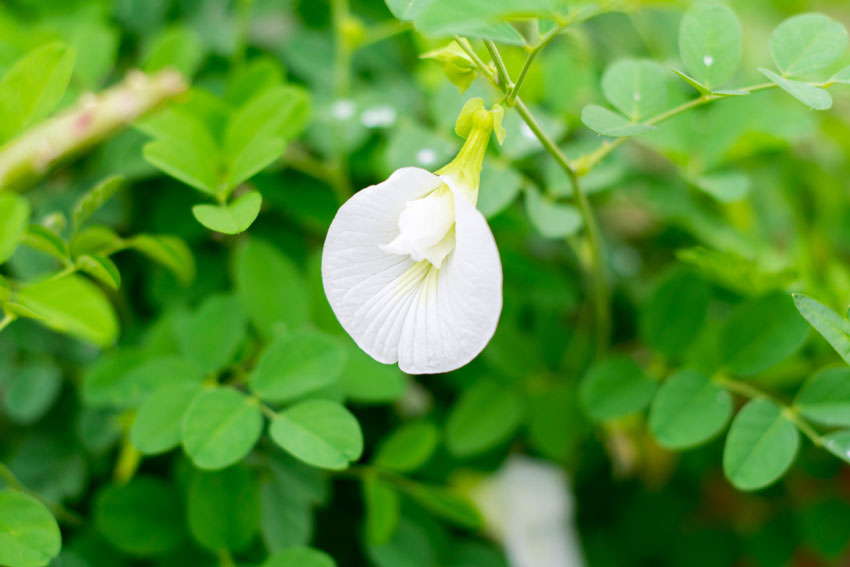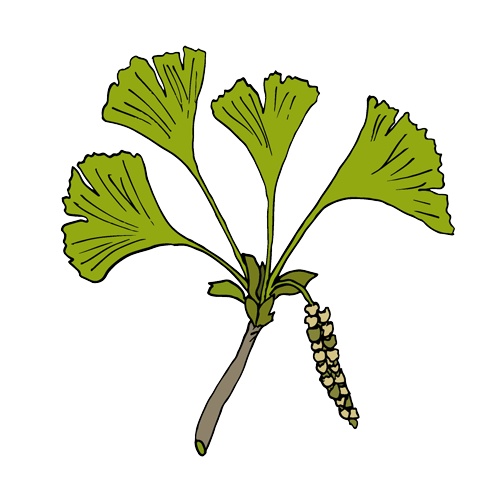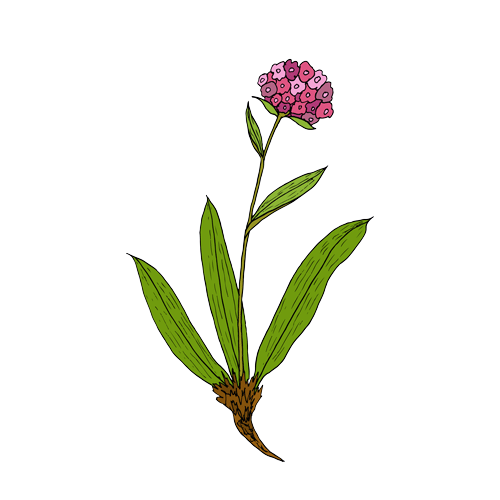6 Brain Tonics in Ayurveda: Super-herbs for Mental Clarity
From the day-to-day hectic shuffle to get our work done, sustain relationships with significant others, and try to find meaning in all of the disarray, it’s easy to get caught up in cycles of monotony. While habits are evolutionarily natural to humans, the mindless default motor functions we perform to get through our day can also prove to be harmful on our creative capacity. Especially in an age where many of us are overworked and exhausted from doing our best to get ahead and better ourselves, the pressures of everyday life can be severely stress-producing. A lack of sleep, poor diet, and the natural aging process on top of this can contribute to a condition known as mental fog, which can make it hard to concentrate and deliver the most creative versions of ourselves.
In many instances, simple changes to how often we exercise, what foods we eat, and how much we sleep can help boost mood and mental power. These foundational factors are at the core of our brain’s ability to function, and without proper diet, sleep, and exercise, additional supplements we take can only help so much. However, if you are seeking that extra boost for your brain in the form of an herbal tonic, there is a class in ayurvedic medicine dedicated specifically to improve memory and intellect.

What is Medhya Rasayana?
Ayurveda, an ancient system of natural medicine with an origin in India, is commonly known to incorporate herbs, roots, and other natural substances into prescribed routes of treatment and therapy. Like other systems of eastern treatment and care, Ayurveda commonly recommends modifications to one’s lifestyle as well, reinforcing the importance of holistic health – from rest and nutrition, to herbal supplements and teas.
Under the umbrella of Ayurveda lives a classification of herbs known as Medhya Rasanaya. While western terminology would normally refer to such substances as nootropics, plants that fall under the Medhya family are valued for their brain-boosting abilities. “Medha” roughly translates to intellect or retention, and “Rasanaya” means therapeutic process.
Many of these herbs are known for their bitter taste, and bitter herbs are generally linked to increasing awareness and sensitivity, allowing our minds to function with more clarity and efficiency. According to Chopra.com, these bitter herbs tend to be highly detoxifying for the body, and tend to increase Vata (one of the three energies that is associated with creativity, enthusiasm, and focus). It is often found among bitter foods such as raw green vegetables, but are also abundant in certain roots and herbs used in ayurvedic medicine.
Many of these mind supplements stand out as ideal brain tonics to promote energy flow and increase creativity, such that they naturally balance out the body’s Vata levels. Here are a few of the most brain-nourishing natural herbs and roots.

1. Shankhpushpi
Also known by its scientific name as C. pluricaulis, shankhpushpi is a perennial herb that is commonly found in parts of India, and looks very similar to morning glory. It is not only traditionally used in ayurvedic medicine, but in ancient Chinese treatments as well, seeing medicinal use for a number of viral diseases, central nervous system (CNS) diseases, and many other conditions.
Shankhpushpi is also renowned for its ability to boost memory and improve mental clarity and intellect. In Ayurveda, it is classified as a medhya rasana (essentially a brain booster), making it an ideal candidate for a brain tonic. Research has also associated the shankhpushpi herb with significant improvements in intellect. Most people consume this herb in its powdered form, mixing approximately half a teaspoon into hot, filtered water, 1-2 times per day.

2. Shatavari
This herb is a member of the asparagus family, and is widely recognized as an adaptogenic herb. This means that it naturally helps the body adapt to stressful situations, helping to ease inflammation and calm the mind without causing drowsiness or mental fog. Research reveals that this herb also happens to have powerful antioxidant properties, so it is not only an excellent brain tonic, but an effective detoxifier for the body as well.
As a brain tonic, shatavari has been studied to be effective in fighting fatigue, mental stress, and depression. In fact, research has revealed that this herb can help to decrease immobility and learned helplessness in rodents, supporting the idea that it has the potential to guide better decision-making in humans.

3. Ashwagandha
If you’ve read any of our other content, you already know how obsessed we are with ashwagandha. This herb is actually a relative of tomatoes and potatoes, while the root of the plant is finely ground to produce a highly nutritious and beneficial powder that many people mix into warm teas. The plant is native to parts of North Africa and India, and is regarded as one of the most foundational herbs to Ayurveda.
This herb is also classified as an adaptogen (like shatavari), so it is commonly used to help manage stress, promote restful sleep, and fight depression and anxiety. However, many studies reveal that this herb is capable of far greater healing powers. For example, some research has confirmed that ashwagandha has the ability to reduce blood sugar levels in individuals with diabetes. Other research has even revealed that ashwagandha can help prevent the spread of cancer from infected cells to healthy organs. As a brain tonic, ashwagandha has shown fairly significant ability to boost memory and cognitive performance. For example, one eight week study on adults taking a daily regimen of 300mg of ashwagandha root extract significant cognitive improvements on factors like reaction time, psychomotor performance, and choice discrimination.

4. Brahmi
This plant commonly grows in marshlands and wet environments in India, and is technically classified as a water hyssop. Extract from this herb has been an integral part of ayurvedic medicine for thousands of years, and is sometimes taken with shatavari or ashwagandha. As a natural ayurvedic brain tonic, research reveals that Brahmi produced significant outcomes in the ability of adults to learn and retain new information. Other studies have produced similar findings, linking the regular use of Brahmi with improvements in memory and brain function.

5. Ginkgo Biloba
Ginkgo supplements have been used in ayurvedic medicine and traditional Chinese medicine for thousands of years, and comes from the seeds and leaves of the plant. The Ginkgo tree is deciduous, and is considered sacred and found in Buddhist temples all over Asia.
Like ashwagandha, ginkgo biloba is also considered a wonder-herb; it has applications ranging from neuropathy and blood pressure problems, to schizophrenia and depression. As a brain tonic in Ayurveda, this herb is often recommended for improving memory and cognitive sharpness. In fact, one study revealed this herb to be an effective treatment for children with ADHD, significantly helping with factors such as focus and acuity.

6. Jatamansi
Nardostachys jatamansi is an herb that is found at high altitudes of the eastern Himalayas, and is easily identifiable by its pink, bell-shaped flowers. Also commonly known as Muskroot, this ayurvedic remedy finds its place in the Valerian family. Jatamansi is a powerful natural brain tonic, responsible for aiding in the synthesis of several neurotransmitters in the brain such as GABA and serotonin. Research has revealed that this herb can be effective in improving memory and learning, and has even reversed aging-induced amnesia in elderly mice.







